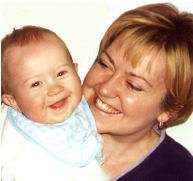Hidden Cruelty in Child-Rearing and the Roots of Violence
Alice Miller
...On the other hand, Hitler was certainly not an isolated phenomenon. He would not have had millions of followers if they had not experienced the same sort of upbringing. I anticipated a great deal of resistance on the part of the public when I advanced this thesis - which I am convinced is a correct one - so I was surprised to discover how many readers, both young and old, agreed with me. They were familiar from their own backgrounds with what I depicted. I didn't have to adduce elaborate arguments; all I needed to do was describe Hitler's childhood in such a way that it served as a mirror, and suddenly Germans caught their own reflections in it.
It was the personal nature of their responses to the three examples I present in my book that enabled many people to understand in a more than purely intellectual sense that every act of cruelty, no matter how brutal and shocking, has traceable antecedents in its perpetrator's past. The diverse reactions to my book range from unmistakable "aha" experiences to angry rejection...
...Be that as it may, to some degree we can all be numbered among the survivors of "poisonous pedagogy" ("good upbringing"). Yet it would be just as false to deduce from this fact of survival that our upbringing caused us no harm as it would be to maintain that a limited nuclear war would be harmless because a part of humanity would still be alive when it was over. Quite apart from the culpably frivolous attitude toward the victims this view betrays, it also fails to take into account the question of what aftereffects the survivors of a nuclear conflict would have to face. The situation is analogous to "poisonous pedagogy", for even if we, as survivors of severe childhood humiliations we all too readily make light of, don't kill ourselves or others, are not drug addicts or criminals, and are fortunate enough not to pass on the absurdities of our own childhood to our children so that they become psychotic, we can still function as dangerous carriers of infections. We still continue to infect the next generation with the virus of "poisonous pedagogy" as long as we claim that this kind of upbringing is harmless. It is here that we experience the harmful aftereffects of our survival, because we can protect ourselves from a poison only if it is clearly labelled as such, not if it is mixed, as it were, with ice cream advertised as being "For Your Own Good"...
...Although the general public is beginning to understand that this suffering is transmitted to one's children in the form of an upbringing supposedly "for their own good", many people with whom I have spoken in the United States still believe that permissive methods of child-rearing allow children "too much" freedom and that it is this permissiveness, not "poisonous pedagogy" that is responsible for the marked increase in crime and drug addiction. Even cartoons and jokes make fun of parents who have a tolerant and supportive attitude toward their children, emphasizing the dangers if parents allow themselves to be tyrannized by their children. King Solomon's mistaken belief (if you spare the rod you will spoil the child) is still accepted today in all seriousness as great wisdom and is still being passed on to the next generation...
... Someday we will regard our children not as creatures to manipulate or to change but rather as messengers from a world we once deeply knew, but which we have long since forgotten, who can reveal to us more about the true secrets of life, and also our own lives, than our parents were ever able to. We do not need to be told whether to be strict or permissive with our children. What we do need is to have respect for their needs, their feelings, and their individuality, as well as for our own...
Copyright ©1983 Translation by Alice Miller. Excerpted from For Your Own Good, by Alice Miller. Reprinted with permission of Farrar, Straus and Giroux, Inc.
